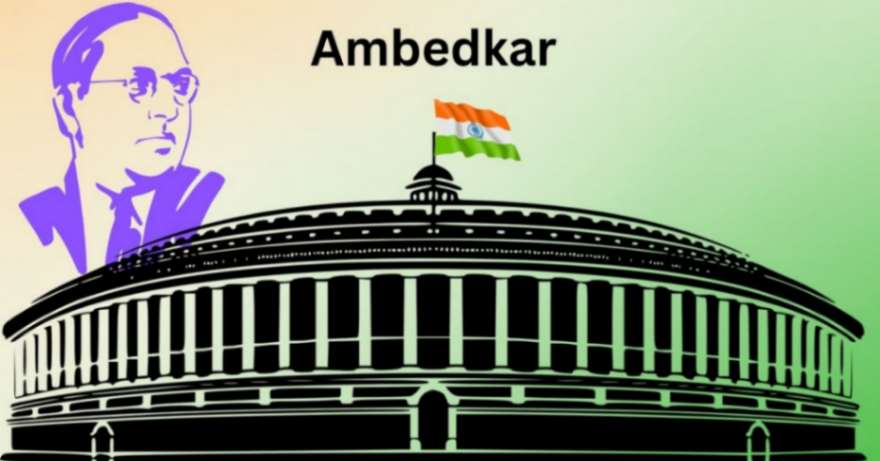The Indian Constitution is attributed to Dr. Baba Saheb Ambedkar (Bhimrao Ramji Ambedkar). He possessed many talents, including those of an economist, lawyer, politician, writer, and social reformer. India’s highest civilian award, the Bharat Ratna, was given to B.R. Ambedkar in 1990.In this article we will examine life and contributions of Ambedkar
B.R.Ambedkar Education
B.R. Ambedkar was born on April 14, 1891 in Mhow, near Indore. Ambedkar’s family suffered a lot of hardships in those days, as Dalits were not allowed access to education, employment, or social equality.
His family moved to Mumbai, where he completed his high school education and studied for a Bachelor of Arts in Economics and Political Studies at Bombay University. He was the first among his community to be admitted to the High School, and there he met Sayaji Rao III of Baroda, who sponsored his further education, including an M.A. and a PhD, at Columbia University and the London School of Economics respectively.
In 1917, Ambedkar returned to India and worked as the military secretary in Baroda. He then went on to become a professor at Sydenham College and the Government Law College.He was a fellow of the University of Bombay as well. His slogan, “Educate, Unite, Agitate,” inspired him for social reform and raise socio-political consciousness among the Dalits.
In order to educate the people and improve their economic situation, he established the “Bahiskrata Hitkarini Sabha” in 1923. He was the leader of the anti-caste movement in 1927. He led a march against caste-based discrimination. In 1930 he led temple entry campaigns for the lower castes, and in September 1932, the Poona pact with Gandhiji granted voting rights and reservation in government jobs and legislatures to untouchables. Ambedkar became a Buddhist the same year his wife Ramabai passed away from a protracted illness in 1935.
Constitution of India was drafted in 1948 by Ambedkar and adopted with few changes in 1949.He had, health problems such as sleeplessness after finishing the draft of India’s constitution.
Ambedkar contributions
Fight against social Evils: Dr. Ambedkar spent his entire life fighting against social evils like untouchability and for the rights of the Dalits and other oppressed groups. Ambedkar desired to make reservations for Dalits and other religious communities. He founded a newspaper called “Mooknayaka” (Silent Leader) to raise awareness about caste discrimination. He stressed the need for women’s right and family planning.
Free and mandatory education for lower castes: He emphasized the importance of high-quality education starting in elementary school to help students develop their knowledge, especially in science and technology, as well as their personalitie.
Great Economist: Dr. Ambedkar wrote three academic books on economics: The Rupee Problem, The Evolution of Provincial Finance in British India, and Administration and Finance of the East India Company. Economist and political activist Dr. B.R. Ambedkar emphasized the importance of establishing a democratic society and economy. With the establishment of the Finance Commission of India in 1951, he implemented policies related to excise duty and land revenue tax that helped stabilize the economy.
Constitution of India: Drafted by Ambedkar, guaranteed social justice to marginalized castes, tribes and communities.
Establishment of Projects: He was a key figure in establishing Employment Exchanges, Many Projects such as Damodar Valley Project, Central Water Navigation and Irrigation Commission.
Conclusion
Dr. Baba Saheb Ambedkar is known as the father of the Indian Constitution. The Constitution, a crucial document in India’s development as a democratic, socialist, secular, and independent nation, upholds fundamental rights and protects minority interests. Ambedkar has made significant contributions to the finance industry, social justice for the oppressed, and Quality education.
Ambedkar Jayanthi
The birthday of Ambedkar (April 14) is celebrated as Ambedkar Jayanti.

